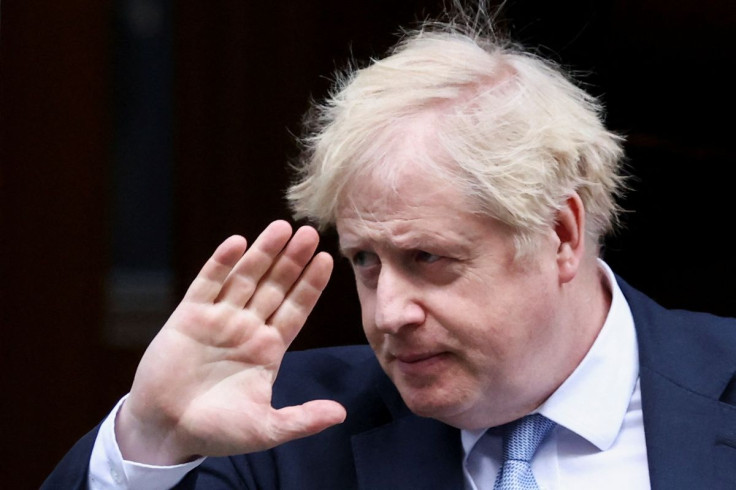UK's Johnson Calls For Tough European Stance Over Ukraine

Britain called on Thursday for Europe to hold firm over Ukraine's right to join NATO, as Prime Minister Boris Johnson visited the alliance headquarters to rally allies and sent his foreign secretary to Moscow with a warning not to invade.
Russia has more than 100,000 troops at the Ukrainian border, and the United States, Britain, the EU and NATO fear it may be planning an invasion. Moscow denies this but says it could take unspecified "military-technical" action unless demands are met, including barring Ukraine from ever joining the Western military alliance.
Britain's diplomatic push comes as Johnson is grappling with the worst domestic political crisis of his premiership: a police probe into lockdown parties in Downing Street which has led some lawmakers from his Conservative Party to call for him to resign.
It also follows shuttle diplomacy from French President Emmanuel Macron, who visited Moscow and Kyiv earlier this week and, in contrast to U.S. and British leaders, has played down the likelihood of a Russian invasion.
Johnson, the most prominent figure in the Brexit campaign that brought Britain out of the EU, said Britain "remains unwavering in our commitment to European security".
"As an alliance we must draw lines in the snow and be clear there are principles upon which we will not compromise," Johnson said. "That includes the security of every NATO ally and the right of every European democracy to aspire to NATO membership."
While Johnson visits NATO and then Poland, Foreign Secretary Liz Truss is visiting Moscow to hold talks with Foreign Minister Sergei Lavrov.
"Fundamentally, a war in Ukraine would be disastrous for the Russian and Ukrainian people and for European security, and together NATO has made it clear that any incursion into Ukraine would have massive consequences and carry severe costs," Truss told Lavrov.
Defence Secretary Ben Wallace told Times Radio that no one would win from the aggressive invasion of a sovereign state.
"What we're really all trying to do, whether you're in NATO or not in NATO, is protect the sovereign right of countries to choose their security alliances," Wallace said.
© Copyright Thomson Reuters {{Year}}. All rights reserved.





















